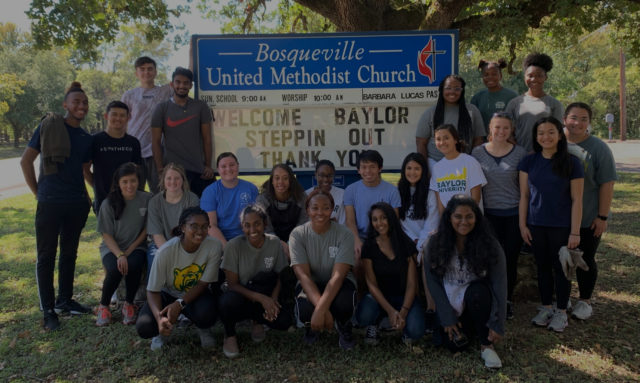By Megan Hale | Reporter
Black History Month provides a purposeful opportunity for individuals of all backgrounds and ethnicities to partner together in celebrating the impact Black history has had on each of our lives.
“I believe that Black History Month has become this space for Black creators and Black visionaries to be more vocal about the things that they’re passionate about, but also a time for us to reflect on the ways that Black people have contributed to culture,” Colleyville senior Dayo Olatunji said.
According to a public health report released by the U.S. National Library of Medicine, increasing minority representation in the health care workforce is vital in supporting the diversity of values of the entire population while emphasizing cultural awareness in how health care practices are delivered.
Olatunji said she grew up greatly aware of the sacrifice required to be a physician. Watching her father’s career as a doctor, she saw firsthand the business of this lifestyle. However, after volunteering and shadowing at her father’s clinic, she realized the incredible impact he was making on those in their community.
“I realized that there were people who also needed him because they had never had access to quality health care,” Olatunji said. “And they would come to his clinic, and he knew them by name. He knew their kids’ names. He knew what sports their kids played. He knew their pets. And it was just these deep relationships that he had formed with them, and I really began to see medicine differently.”
Olatunji said she realized through this experience and the example set by her father that caring and serving others often requires sacrifice.
“I saw that there is a need for relationships in medicine, and I really wanted to be a part of that, and I wanted to be a vocal part of these people’s stories and work toward them getting that quality health care,” Olatunji said.
Olatunji’s said her personal historical inspiration is Dr. Patricia Era Bath. Bath was an African American doctor, inventor and researcher. She was the first Black female to complete a residency in ophthalmology, and she is responsible for the invention of laser cataract surgery. While in school, Bath interned at New York’s Harlem Hospital. The following year, she completed her fellowship at Columbia University.
“She was able to see, during her fellowship at Columbia, that Black people are twice as likely to develop blindness and eight times as likely to develop glaucoma and just way more likely to develop any sorts of visual impairments than their white counterparts,” Olatunji said. “And because of that, she basically devoted a big portion of her career toward making sure that people are able to have quality eye care, no matter their situation.”
The influence of her unique experiences awakened Bath to the systematic problems of diversity in health care, and she devoted the remainder of her career to making a change.
Similar to Olatunji, McKinney senior Daphne Simo’s passion for medicine extends far beyond the classroom.
Growing up, Simo said she always had a natural fascination with science, medicine and how illnesses affected different individuals of different ethnicities.
After hearing a guest lecture given by Dr. Alexa Irene Canady freshman year, Simo said her passion to continue pursuing a career in health care was ignited.
“She was a woman who almost dropped out of college due to self-confidence and not feeling empowered enough to continue her journey to become a physician,” Simo said. “But then, something sparked in her to continue that journey, and so she went on to medical school.”
Dr. Canady was the first Black female neurosurgeon in the United States, and she eventually became the chief of neurosurgery at the Children’s Hospital of Michigan.
“I related to her story, and she really was an inspiration for me,” Simo said.
Simo said she also serves as the medical service chair for Baylor’s Multicultural Association for Prehealth Students (MAPS). According to the MAPS website, this organization seeks to support students of all ethnicities by providing a space for members to learn and appreciate the diverse backgrounds of individuals who make up patient populations.
“Once I joined MAPS, it really gave me a sense of community, so I could be around people my color or who share similar experiences,” Simo said.
Olatunji said speaking on subjects you care about is vital, no matter their popularity level.
“Talk about the things that you’re passionate about even when it seems like you are one of few because there is somebody who needs to hear that, and there are people waiting for you on the other side who are going to need you and who are going to need those ideas that you have,” Olatunji said. “You should never be afraid to vocalize those things, no matter the situation.”



